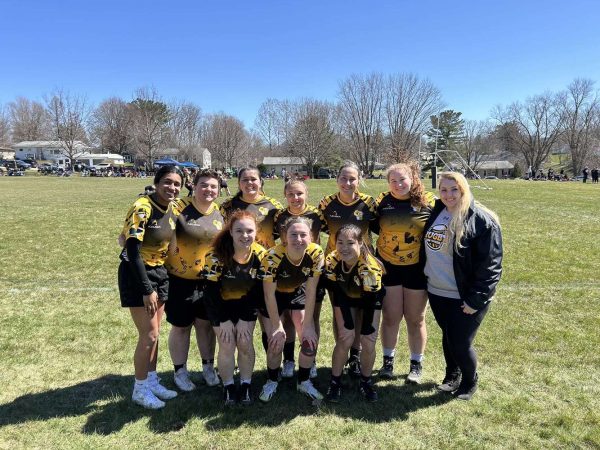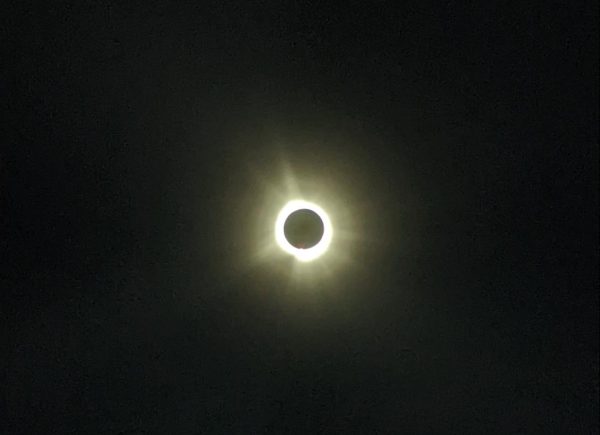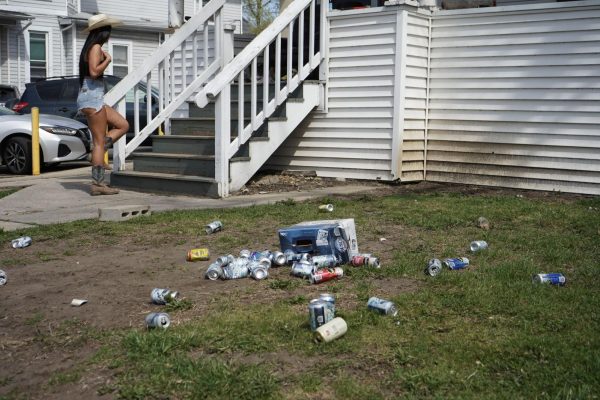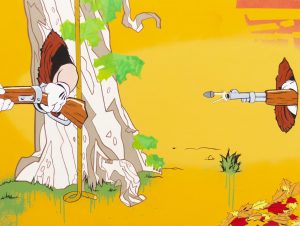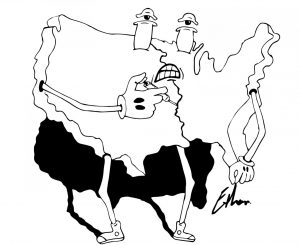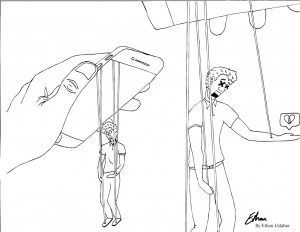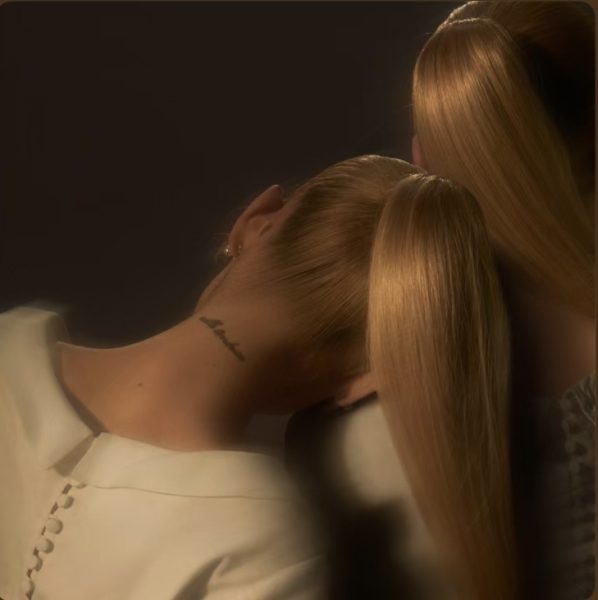High school journalism censorship under fire
The American press has been under attack in recent years with claims of fake news, biased stories and attempts at censorship.
Student journalists have not been immune to these attacks and face even more challenges because they lack many of the First Amendment privileges that professional journalists receive.
Repeated attempts to block and censor student journalists both locally and nationally have brought up concerns regarding the free speech rights of student journalists.
Last month, an Oshkosh North senior and student journalist said administrators violated his free speech rights by removing his article from the newspaper website and demanding he reveal his sources.
About five years earlier, Fond du Lac High School administrators attempted to enact a student publication censorship policy after a student published a story that discussed rape culture and included interviews from three sexual assault survivors at the high school.
It’s not only a problem in Wisconsin.
Just last week, high school journalists in Kentucky said they were blocked from attending a speaking event featuring Department of Education secretary Betsy DeVos held at a public college campus and listed as “open press.”
And on Monday, student journalists in California said their school superintendent is attempting to censor a story they wrote regarding an 18-year-old student who works in the adult entertainment industry.
Administrators say they are trying to look out for the best interests of all students and staff members, but these incidents illustrate the necessity in addressing whether student journalists lose their First Amendment rights when they enter the school doors.
Local censorship
In 2014, the Fond du Lac High School Cardinal Columns student publication made news when the principal tried to enact a prior review policy that would allow him to review and ban any student publication he felt didn’t fit certain criteria.
Backlash regarding the policy led to administrators reconsidering and eventually putting control of the Cardinal Columns back into the hands of the student journalists.
Although this incident occurred five years ago, the censorship of student press at Wisconsin high schools was again brought into question just this month when school administrators in Oshkosh held a listening session on April 10 after an article by student reporters was removed from The North Star website less than an hour after it was posted.
Oshkosh North senior Brock Doemel said administrators pulled him out of class on multiple occasions and pressured him to reveal the confidential source he used in the article. The article was about a missing assistant principal and tied his absence to an incident at school in which bathrooms were locked in response to vandalism.
When Doemel and another student journalist filed an open records request regarding the missing assistant principal, Doemel said the superintendent would only provide those documents if he turned over his reporting notes, account passwords and a $138 processing fee.
A letter written by superintendent Vickie Cartwright said in part “it is necessary that you supply to the District any records you have related to the newspaper and the recent article printed by The North Star so that the District can be fully responsive to your request.”
However, records pertaining to the assistant principal are covered under the Freedom of Information Act, and requiring a reporter to provide their reporting notes and passwords as a bargaining chip to receive documents they have a legal right to see is not only unethical, but also illegal.
UW Oshkosh journalism professor Vincent Filak attended the April 10 listening session and said censorship of student media has been an ongoing problem both locally and nationally.
“There are tons of cases like this where people are being censored,” Filak said. “People are having their ability to conduct business as student journalists taken away from them. They’ve been refused rights of access to things that anybody should be able to get.”
After the April listening session, the Oshkosh Area School District released a statement saying they will not pursue disciplinary action against Doemel or the newspaper adviser, they will not pursue the identification of the article’s source and they are reviewing the policies in place regarding student publications.
Filak said while the abrupt change of heart of the Oshkosh School District was the right decision, school administrators need to start thinking about journalism students’ rights.
“The bigger issue is students getting bullied by their own administration over stuff that they publish that no one is saying is factually inaccurate,” Filak said. “Why is it that we feel like it’s OK to violate rights until we get called on it, and then we backtrack?”
The Supreme Court has ruled that student publications don’t necessarily have First Amendment rights, and there are few cases where courts have decided that student journalists’ First Amendment rights have been violated.
Recent nationwide cases
Even more recent is a case involving student journalists from Dunbar High School in Lexington, Kentucky, who were turned away from a DeVos’ speaking event held at a public college campus because it was by invite only, and they had not RSVP’d.
“If it’s an open public event, it means the public should be open to go there, not just the people you invite,” Filak said.
The students, who had only found out about the event the day before, said they were attending the event in response to a comment DeVos made.
“It is easy to be nasty hiding behind screens and Twitter handles,” DeVos said last fall. “It’s not so easy face-to-face.”
The students wrote an editorial titled “No Seat at the Roundtable,” which described their feelings about being blocked from attending the event.
“Doesn’t open press imply open to ALL press including students?” they wrote in the editorial.
This pattern of discouraging and censoring student journalists was repeated Monday when students at Bear Creek High School in Stockton, California said administrators were trying to censor and block the publication of a story they wrote regarding a student who works in the adult entertainment industry.
In Bear Creek High School’s case, the school superintendent sent the journalism adviser a letter demanding to read the article and claiming its publication may violate California law.
In an interview with Fox 40, the school’s journalism adviser said the story is about a student who “is working legally, in a legal field,” so there is no reason the story should be banned from publication.
Students look to administrators for guidance and support. What type of message does it send to these students when administrators want to control and censor student publications?
Restoring rights to student journalists
A journalist is still a journalist regardless of age. It is time for student journalists to be treated with respect and allowed access to the same information and events professional journalists receive access to.
Filak said people don’t take student journalists seriously and view student journalists as “somewhere between a little kid getting a pat on the head and a puppy that we can kick down the street.”
To restore First Amendment protections to student journalists in Wisconsin, Fond du Lac High School newspaper adviser Matt Smith has been working to get legislation passed that would allow students to control student media.
The policy, called the New Voices Act, has already been adopted by 14 states and has been drafted in Wisconsin.
“The goal of New Voices is to have a state law that makes it very clear what students are allowed to print in student publications and what they’re not,” Smith said. “Unless speech is illegal already or significantly disrupts the school learning environment, that it should be allowed.”
In addition, the Student Press Law Center has named 2019 the Year of the Student Journalist to encourage more states to enact New Voices legislation and to highlight the importance of student journalists and the challenges they face due to censorship and prior review policies.
Not only does the censorship of student journalists deprive them of the opportunity to investigate and examine the world, it also restricts them from information they should legally be allowed access to.
If censorship of student publications is allowed to continue, it will degrade the journalistic standards of truth and accuracy by silencing student journalists.
“It’s clear that when students are told they can publish as they see fit, but they are going to be responsible for that content, the students take those responsibilities seriously, and they publish important and valuable content,” Filak said.
Doemel agreed.
“My only intent as a journalist, now and at the time of the article’s publication, is to keep my school and community informed of the truth,” he said.
It is time to end the attack on the American press and protect student journalists by enacting New Voices legislation and restoring First Amendment rights to students.

